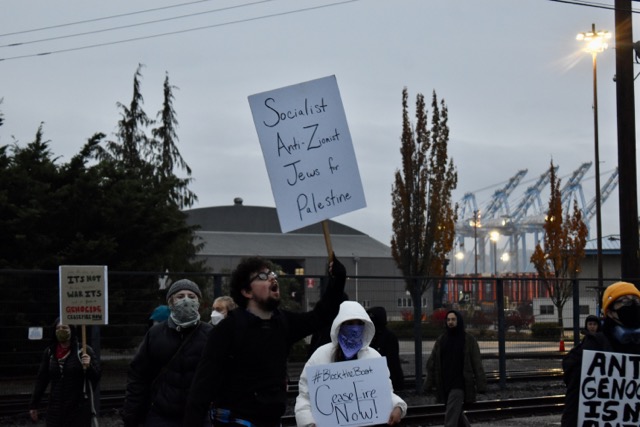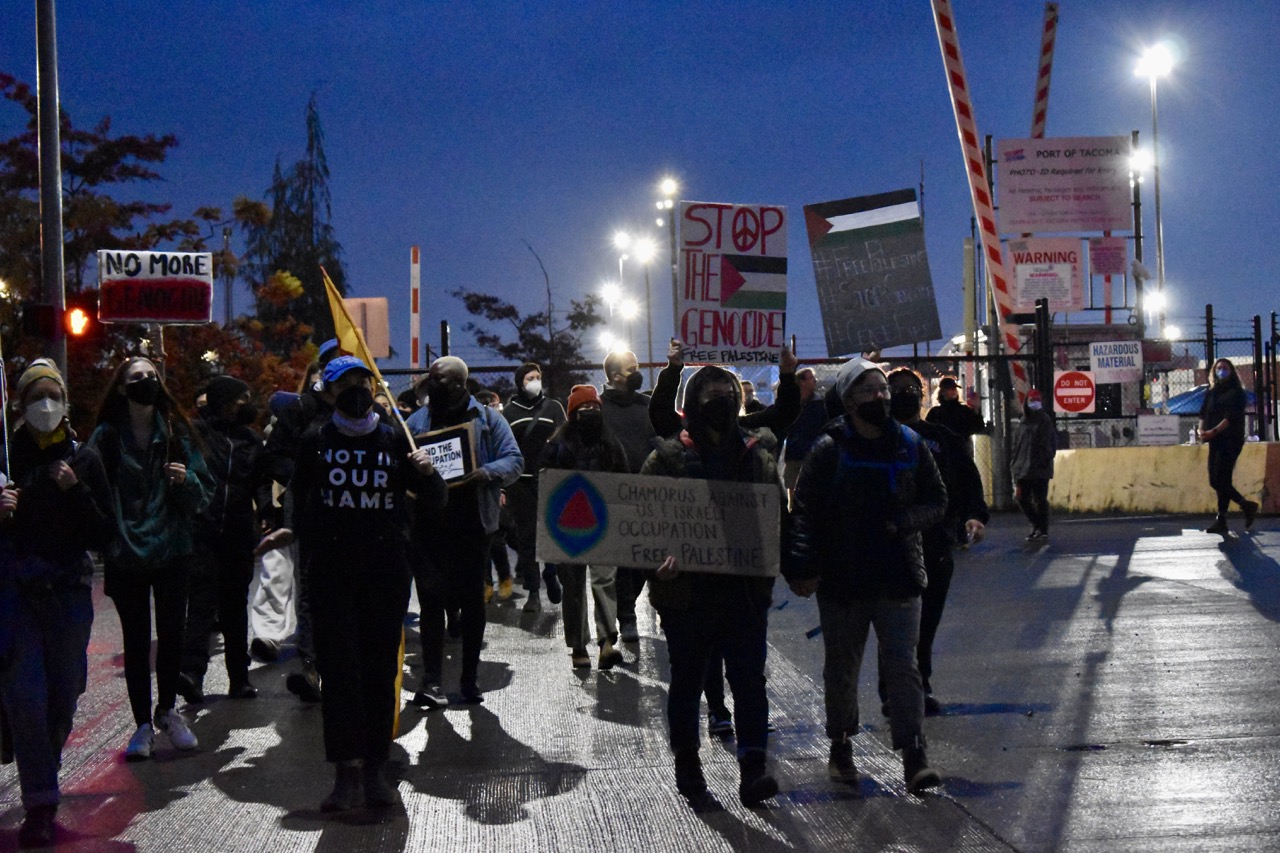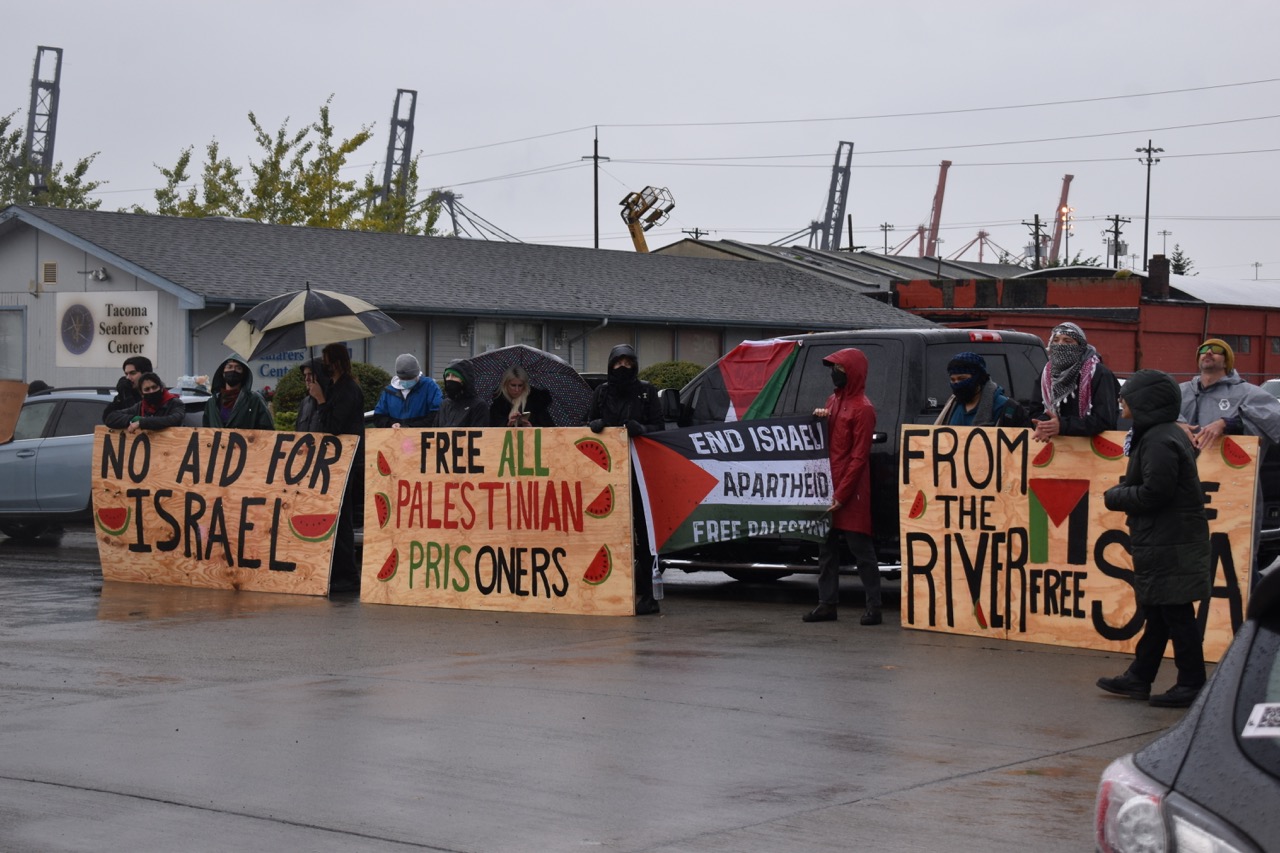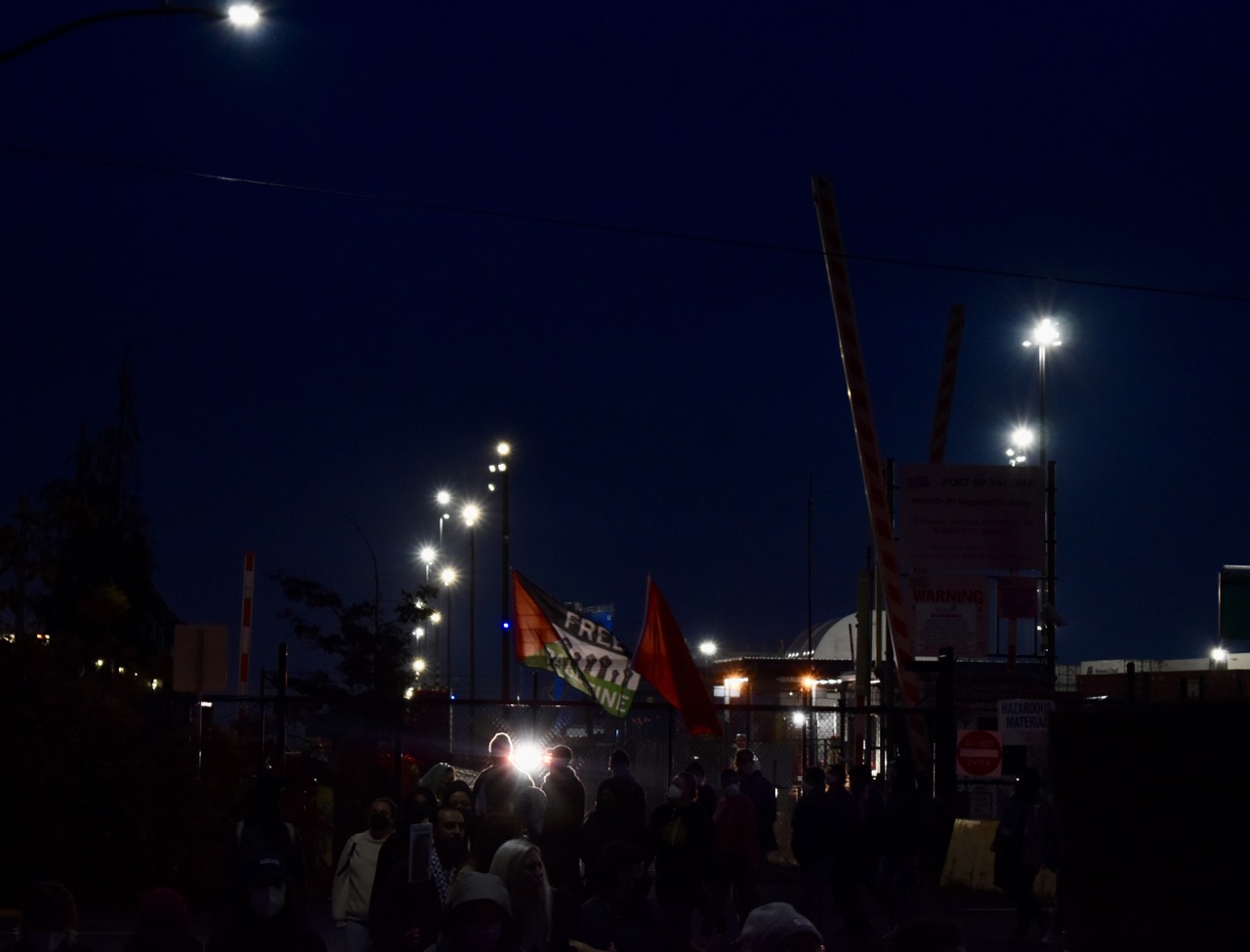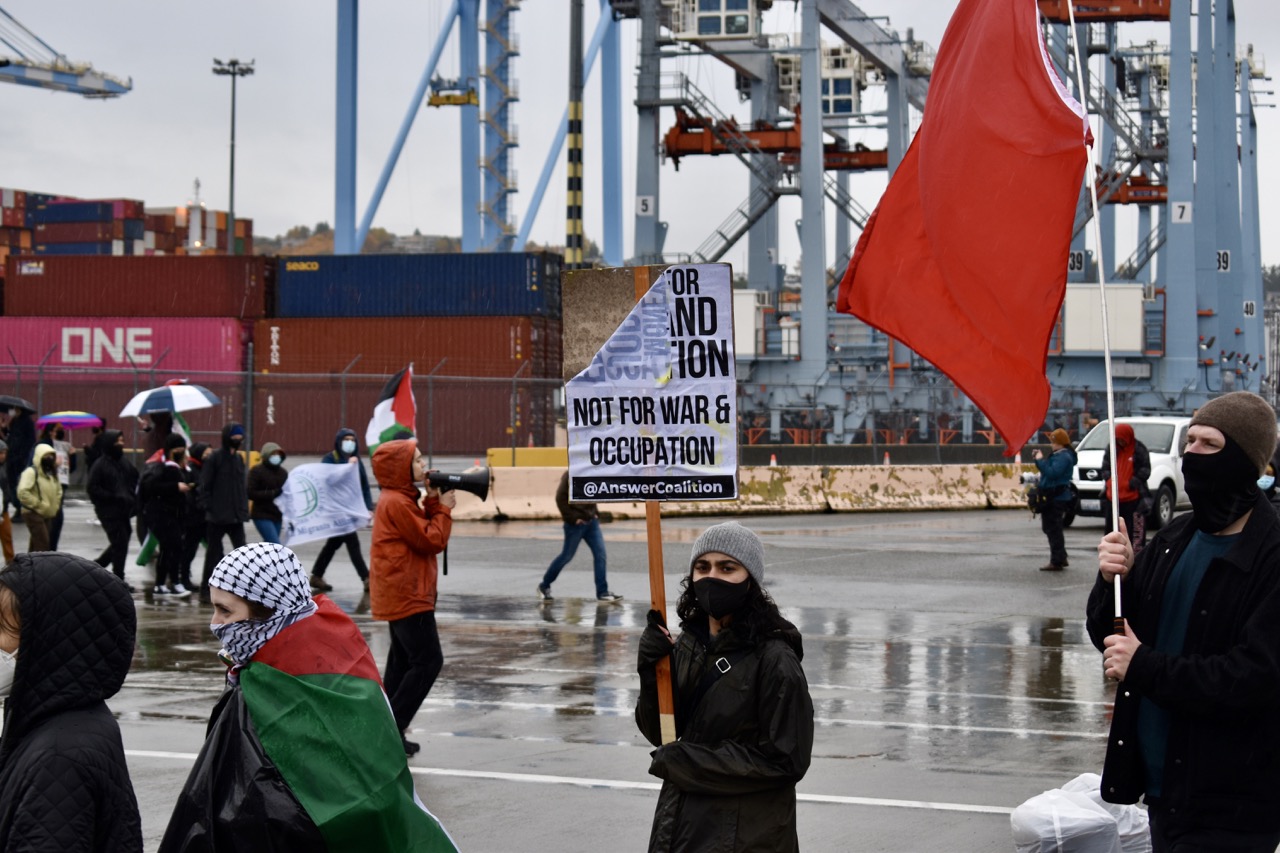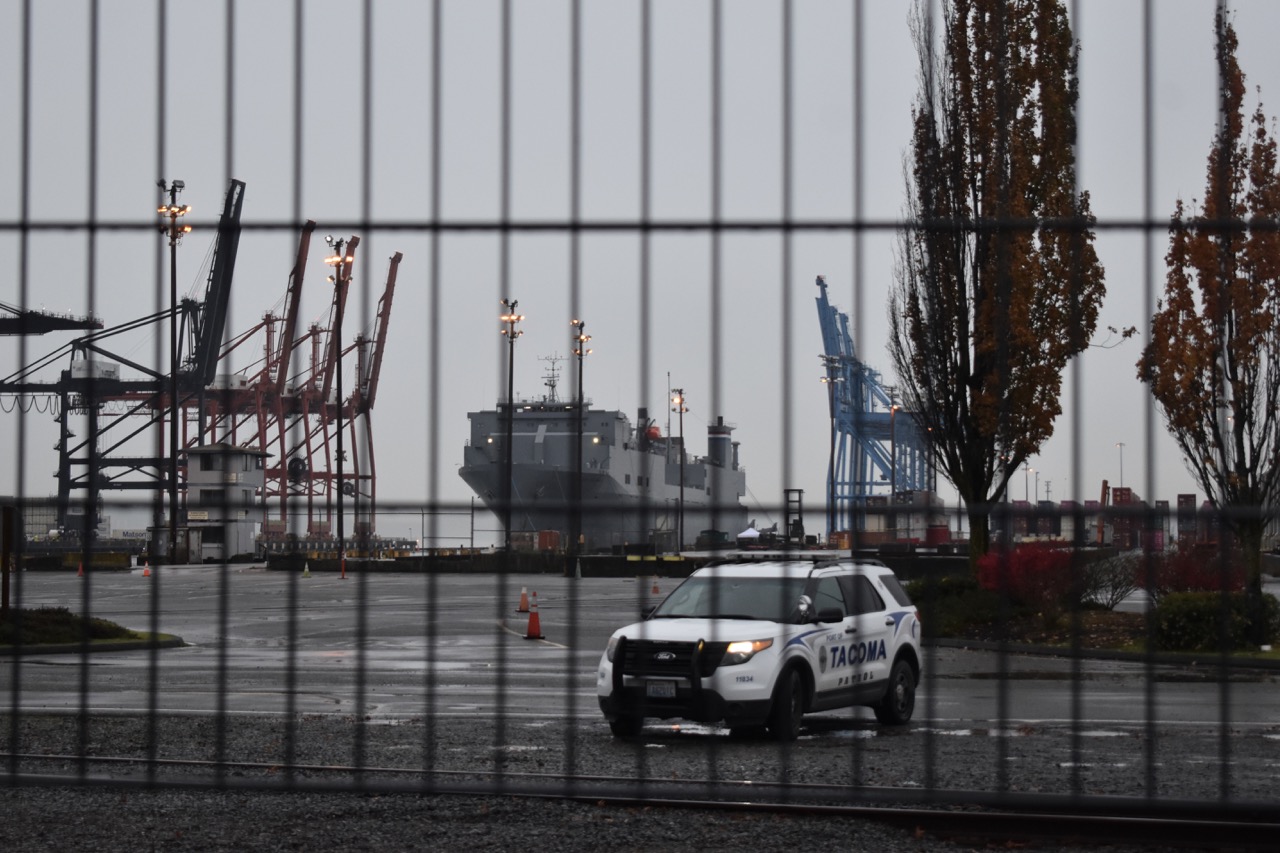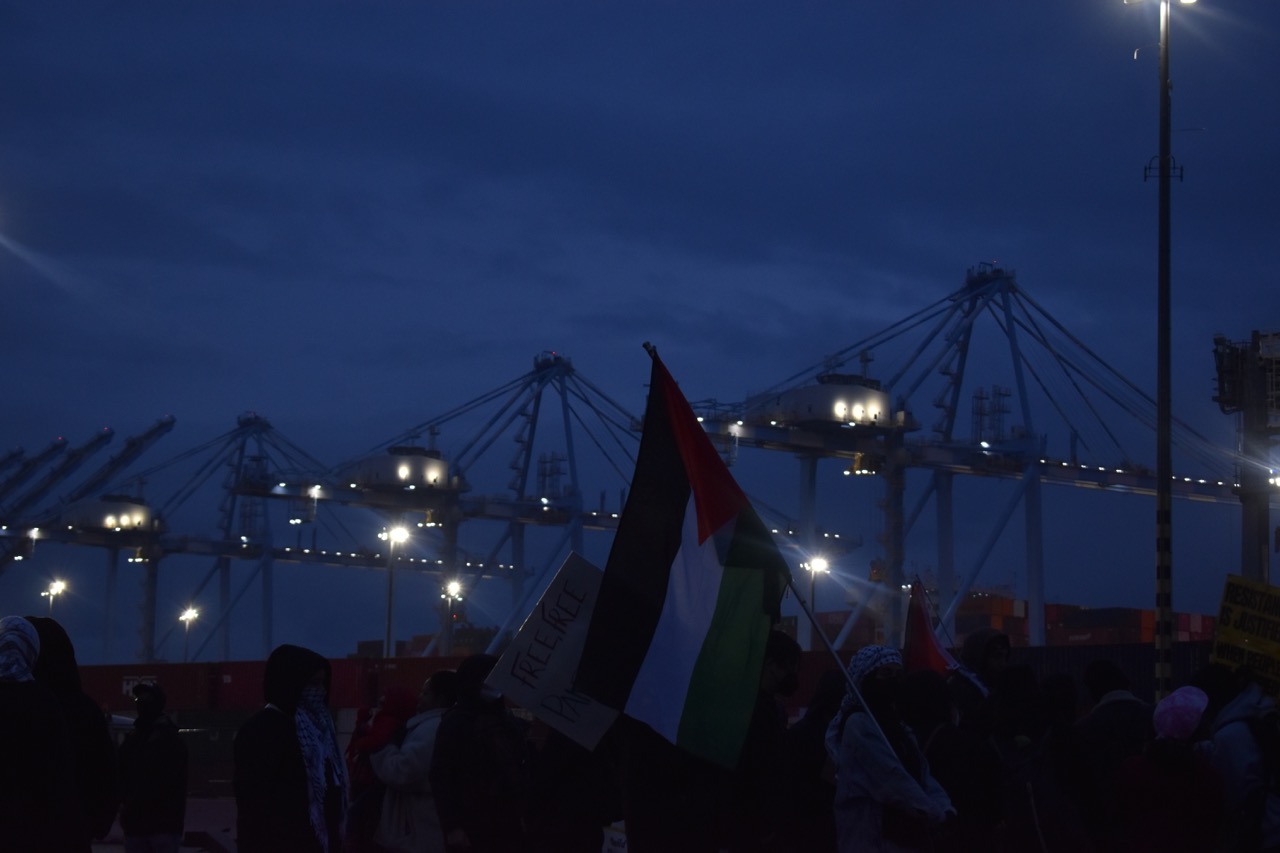
By Andrew Benoit
On Monday, Nov. 6 hundreds of pro-Palestinian demonstrators enforced a blockade on Terminal 7 at the Port of Tacoma, preventing access to the loading docks. The demonstrators, consisting of a broad coalition of organizations including Students United for Palestinian Equality and Return at the University of Washington (SUPER-UW) and Samidoun Seattle aimed to block the MV Cape Orlando, a military supply vessel, from being loaded with weapons destined for Israel. The US military has confirmed that the boat was transporting US military supplies, but the Department of Defense has not provided a destination or information of any time, citing security concerns.
The group gathered at the port at five in the morning, intending to block access before the longshoremen started their shift. Using cars, bikes, and their bodies the protestors blockaded over a mile of streets, preventing access to the docks. Indigenous demonstrators even blockaded the port from the water with a Nisqually canoe, along with some ‘kayaktivists’. Unlike at the earlier protest in Oakland, where three people were arrested climbing aboard the ship, no demonstrators attempted to cross into the fenced off area and directly interfere with the boat.
Despite persistent rainfall and cold conditions, the protesters successfully delayed the boat’s departure from the port for hours. The ship was apparently scheduled to depart from Tacoma to Israel at 8:00 AM, but was delayed for over eight hours. The blockade also stopped all trucks from entering the port as protestors aimed to induce economic costs for the US’s continued support for Israel. The Democratic Socialist organization in Tacoma claimed the action caused the loss of “hundreds of millions of dollars” on their Instagram. It’s difficult to assess the truth of this claim, but operations at Terminal 7 were shut down for over 12 hours. The protest was called off by the organizers prior to the boats complete departure, a decision which some criticized afterwards on social media.
Several students from the University of Puget Sound attended the demonstration. Clarke Buckenmeyer (‘25) made their way to the Tacoma Dome hours before dawn to catch a carpool down to the port. Buckenmeyer sees it as their duty to take action against the US’s involvement in the war in Gaza, which has claimed the lives of over 10,000 people in just over a month of fighting. “As a person in the United States, as someone who pays tax dollars to the United States, as somebody who benefits from the systems of imperialism that are present here, it feels like the least I can do to show up and resist,” they said.
Alex Gully (‘24) also braved the rain and the dark to show their support for the Palestinian cause. “If you’re a human you should care about the genocide going on right now,” they said.
Protestors from the University of Puget Sound were in good spirits throughout the day, despite the poor weather conditions. “It just started raining and I don’t see anyone slowing down, which is really heartening,” Gully said.
At around 9:20 a.m., an organizer alerted the crowd that an important member of the Cape Orlando’s crew had decided to walk off the boat in solidarity with their movement. The organizer promised the jubilant crowd that the boat would be unable to leave without this crewman, drawing loud cheers.
This jubilee may have been premature, as some protestors later circulated screenshots claiming that the longshoremen had been replaced with military personnel who slipped inside the port prior to the blockade. Others claimed the military had slipped in by boat during the blockade and loaded it under the noses of the demonstrators. Still other people claimed that the military was not involved in loading the ship at all. The Trail has not been able to independently confirm any of these claims. However, the military’s involvement would explain how the ship was able to depart at all, delayed or not.
Still, the Tacoma DSA claimed that not all the supplies had been delivered prior to the blockade, meaning that the protesters succeeded in preventing at least some weapons from getting on board. The crewmen who walked also appeared to have a significant effect on the delays the Cape Orlando suffered.
Alon Lapid, a member of SUPER-UW, was explicit about what the demonstrators believe the US weapons are being used for by the Israeli Defense Forces, which he calls the Israeli Occupation Forces. “The military boat will be loaded with weapons that will be sent to the Israeli Occupation Forces as they actively commit genocide against the Palestinian people in Gaza as well as the occupied West Bank,” he said.
The protests at the port are only one part of a broader pro-Palestine movement sweeping the globe. The Cape Orlando was significantly delayed by a small group of protestors in Oakland, some of whom also attended the protest in Tacoma. Lapid points out that SUPER-UW and other organizations have been out in the streets for over four weeks calling for a cease-fire and an end to US aid to Israel.
Lapid recognized that the protests were probably never going to stop the boat from being loaded, but highlighted the importance of their delaying action. “We know that there are people taking inspiration, both in the United States and across the world, from this action, and it’s not going to be the last,” he said. “We are going to keep going until this genocide ends, and until Palestine is free from the river to the sea.”

